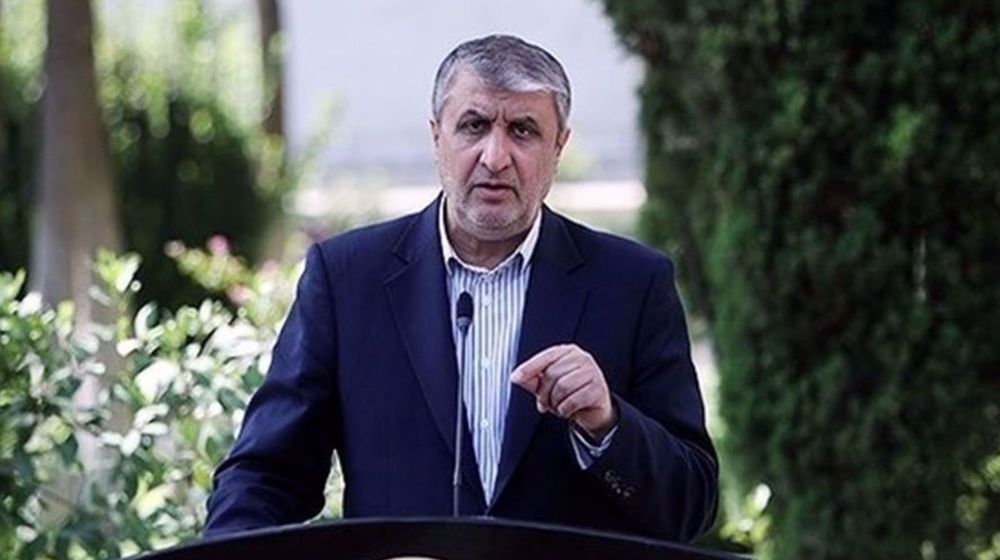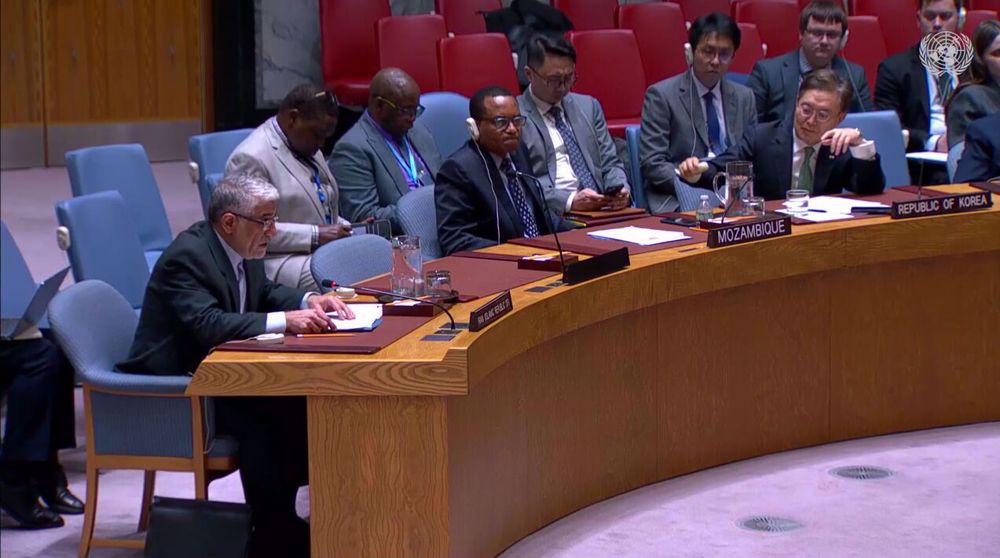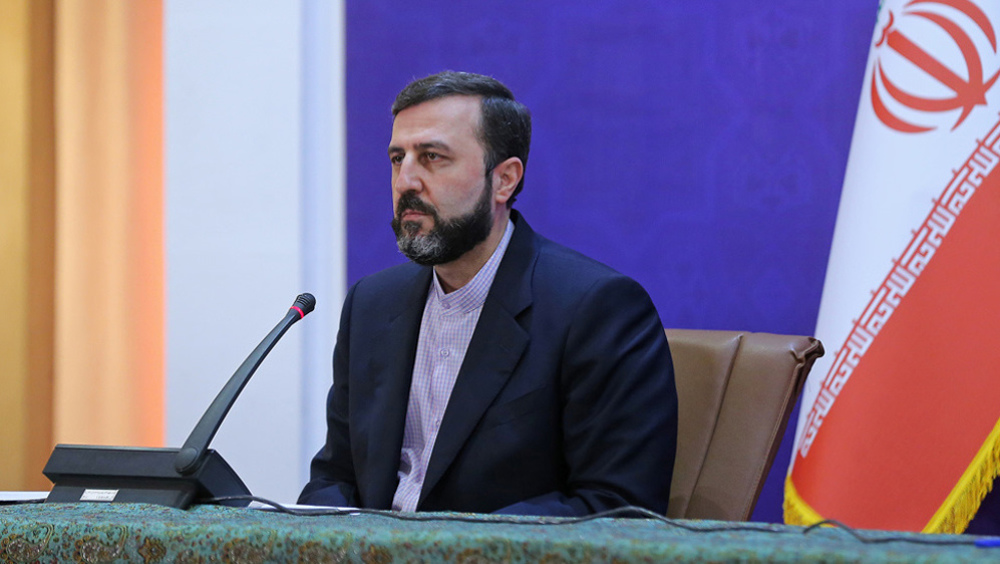Iran nuclear deal revision Trump's delusion: Shamkhani
A senior Iranian official says the idea of making revisions to the multilateral 2015 nuclear agreement is brazen, stressing that the suggestion is a mere delusion entertained by US President Donald Trump.
Secretary of Iran's Supreme National Security Council (SNSC) Ali Shamkhani made the remarks in an interview with Iran's Arabic-language Al-Alam news channel after the US president once again threatened to withdraw from the nuclear deal, officially known as the Joint Comprehensive Plan of Action (JCPOA), if some "disastrous flaws" were not fixed.
Shamkhani said Washington's recent attempts to jeopardize the nuclear accord were illegal, adding that there is no possibility of renegotiating the JCPOA under any circumstances.
The US president on January 12 reluctantly agreed to waive sanctions against Iran that were lifted as part of the landmark deal, but said it would be the last time he issued such a waiver unless conditions were met.
Trump said he wanted America's European allies to use the 120-day period before sanctions relief again came up for renewal to agree to tougher measures and new conditions, otherwise Washington would pull out of the deal.
Elsewhere in his remarks, the senior Iranian official hailed the country’s missile capabilities and said the Islamic Republic would strongly continue to develop its deterrence power to repel foreign threats.
"We will have no negotiations on the missile issue and our defense power with any country," the SNSC secretary reiterated.
He said Iran's moves in the region are not in violation of the UN Security Council's resolutions.
The US bids to depict a wrong image of Iran's stabilizing role are rooted in failed attempts by Washington and its allies in using terrorism as a tool to impose their own will on independent countries in the region, Shamkhani added.
A senior Iranian military commander said in October the Islamic Republic will never allow any inspection of its military sites, stressing that the country’s missile capabilities are not up for negotiations.
“Our missile might is among the [country’s] capabilities that are not negotiable at all,” Brigadier General Ahmad Reza Pourdastan, the second-in-command of the Iranian Army, said.
Iran has managed to attain self-sufficiency in manufacturing necessary military equipment in line with its policy to boost defensive capabilities against potential threats.
Tehran maintains that its military power poses no threat to other countries and that its military doctrine is solely based on deterrence.
Israeli strikes on north Gaza hospital ‘extremely dangerous, terrifying’: Director
VIDEO | Yemen targets Tel Aviv with Palestine 2 missiles
Pezeshkian: Iran resolved to complete North-South Transport Corridor
VIDEO | Iran-Syria: For Resistance
Qassam Brigades claims killing 3 Israeli troops in northern Gaza
More alive than ever: Sayyed Hassan Nasrallah's legacy grows stronger in martyrdom
Occupation of Syria’s highest peak Mount Hermon part of ‘Greater Israel’ project
Iran: Syrian people will decide their future without foreign interference











 This makes it easy to access the Press TV website
This makes it easy to access the Press TV website